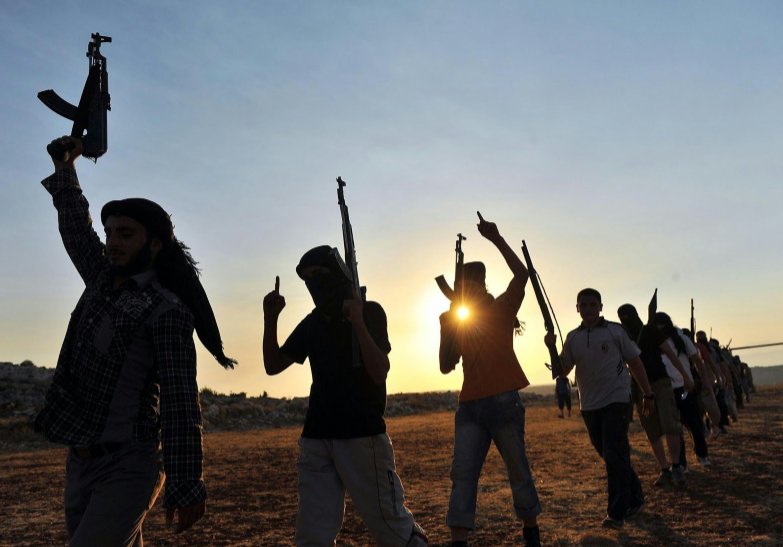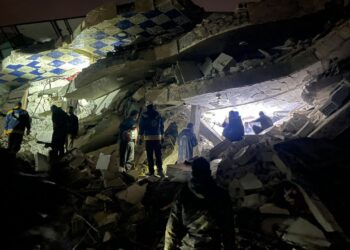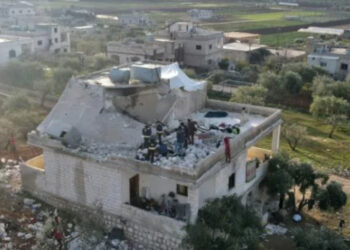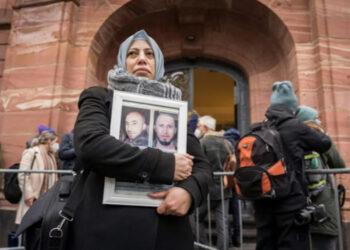A year ago, a Spain-based cell of Islamic State organized, planned, and executed the vehicle attacks that killed 16 and injured 130 people in and near Barcelona. The motivation behind those heinous acts, like others committed around the world, is the Salafist-jihadist ideology. Reports claim that Islamic State has been militarily defeated, but this ideology remains viable and intact in affiliated groups and true believers scattered around the world. Attacks carried out by individuals with this worldview could help IS survive during lean times.
The Islamic State, the self-declared caliphate that began its rise in 2014, has been militarily defeated. Or has it? The military campaign of the U.S. led coalition has been most effective. A 2017 U.S. Department of Defense (DOD) report estimated that 70,000 IS fighters had been killed during Operation Inherent Resolve over four years of war. The large regional caliphate, that actually possessed many of the characteristics inherent to a nation-state, is no more.
But the good news espoused by DOD last year was somewhat dampened by a DOD Inspector General report issued this month, claiming that 28,000 to 30,000 jihadists remain scattered in small enclaves throughout Syria and Iraq. Although some analysts believe these numbers include noncombatants and family members, it is nonetheless a remarkable achievement for a “defeated” organization. As with any war, ground truth is elusive.
Guerrilla Warfare
The report states that an important factor that enabled IS to maintain some fighting strength is an influx of foreign volunteers to the war zone. This is also an indication of the continuing lure of the jihad message to some elements within Islam. But surviving IS elements, still being pressed hard by the coalition forces, have no real conventional combat ability left. It is hard to believe there can be much of a working chain of command.
Recently, surviving fighters have been found in two- or four-man elements only. Although the combat capability of such groups is limited, desperate and dedicated men do have the ability to dig in and make rooting them out a militarily expensive proposition. While IS finances, although reduced, are still significant, I would say the ability of IS to conduct conventional military operations in Iraq and or Syria is nonexistent.
This means that guerrilla warfare, with terror tactics at the forefront, are the movement’s only option at this time. Such tactics are where IS made their original mark in the world and what they are good at. The coalition will continue to fight an asynchronous war against a weaker, but motivated jihadist enemy.
Salafist-Jihadist Ideology
While the caliphate has been disassembled and IS conventional military abilities defeated, the Salafist-jihadist ideology, the driving force that motivates this international movement, remains viable and intact in affiliated groups and true believers scattered around the world. So, the principal danger from IS now lies with the several affiliated groups in other nations, including those in West Africa, the Philippines, Bangladesh, Somalia, Tunisia, Kenya, Tanzania, and Uganda. While these groups are not large, relatively speaking, they are made up of dedicated operatives, loyal to the cause. And these elements have access to financial and logistical support.
As the coalition vise tightened in 2016-17, IS forces were squeezed into smaller and smaller areas in the conflict region. Many took advantage of the fog of war and confused situation to join the refugee flow. The inability of authorities to vet true refugees from escaping fighters has been a real problem for receiving nations. Of particular note is the E.U. open border policy that has aided the exfiltration of IS fighters from the conflict region. The coordinated 2015 attacks in Paris and Brussels are examples of attacks launched by former IS fighters. It is very concerning that IS warriors have been able to relocate and operate in Europe.
Maps of Syria and Iraq showing changes in the territory controlled by the Islamic State group since 2015 pic.twitter.com/chVqH17TwZ
— AFP News Agency (@AFP) December 9, 2017
IS has claimed responsibility for recent attacks in Afghanistan, Chechnya, France, and London. While these attacks are limited in nature, they often prove deadly to the victims in the kill zones. There are few signs or indications from perpetrators prior to such small-scale attacks.
Motivated by Belief System
The technique of individuals or very small cells working without outside help is akin to the concept of “leaderless resistance” practiced by some in the American radical right in the early 1990s. Such individuals are motivated by a central, commonly held belief system. Then it is up to the individual resistor to prepare and then carry the fight to the enemy in his or her locality. Thus, the cause is advanced through a common worldview, but operations are individually executed and uncoordinated, making detection very difficult. Such operations allow the movement to survive during lean times until the movement can gain strength.
The common worldview that holds the IS fighters, al-Qaeda operatives, and other wide-spread individuals together is the Salafist-jihadist ideology. There are selected mosques around the world that adhere to this view of Islam. The cause is continually propagated through social media and jihadi websites on the surface, deep, and dark webs. Such sites are where interested individuals can tune into sermons, theological lectures, tradecraft how-to instructions, best practice lists, and other aids that taken together and internalized by someone motivated to radicalize, can aid in determining their own path to join the jihad.
The military defeat of IS in Iraq and Syria is undoubtedly a major setback for the cause. But, the Salafist-jihadists are deadly serious in their goal of establishing a worldwide caliphate. They are in it for the long haul. Whether an IS jihadi uses a gun, an explosive, a knife or a vehicle, it is the ideology that motivates and inspires the terrorist to act. And it is the Salafist-jihadist ideology that must be defeated.
Disclaimer: The views and opinions expressed here are those of the author and do not necessarily reflect the editorial position of The Globe Post.





















